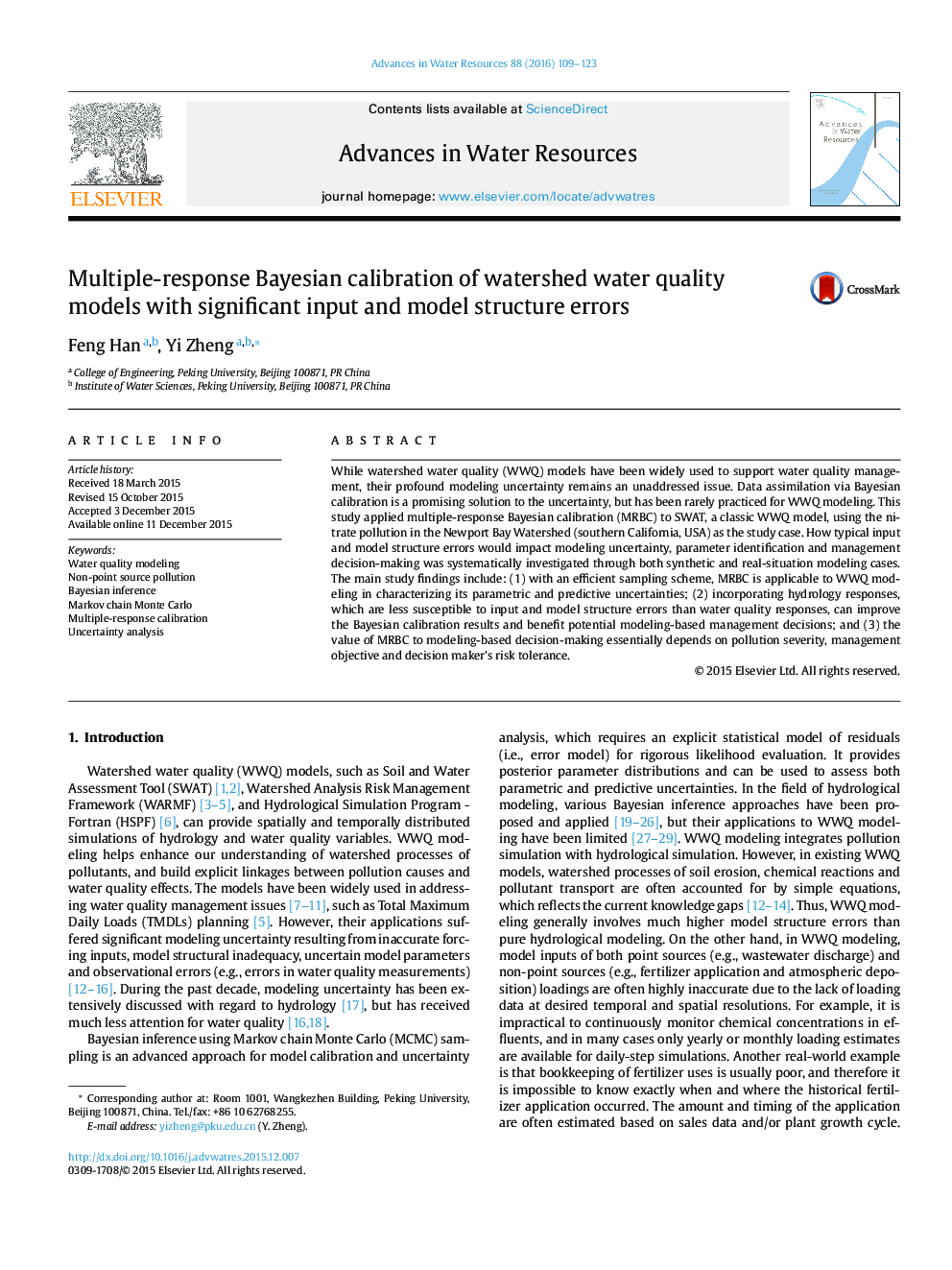| کد مقاله | کد نشریه | سال انتشار | مقاله انگلیسی | نسخه تمام متن |
|---|---|---|---|---|
| 4525327 | 1625622 | 2016 | 15 صفحه PDF | دانلود رایگان |
• Effective multiple-response Bayesian calibration for watershed water quality models.
• Response-dependent impact of input and model structure errors on model uncertainty.
• Complex interactions among modeling, uncertainty assessment and decision-making.
While watershed water quality (WWQ) models have been widely used to support water quality management, their profound modeling uncertainty remains an unaddressed issue. Data assimilation via Bayesian calibration is a promising solution to the uncertainty, but has been rarely practiced for WWQ modeling. This study applied multiple-response Bayesian calibration (MRBC) to SWAT, a classic WWQ model, using the nitrate pollution in the Newport Bay Watershed (southern California, USA) as the study case. How typical input and model structure errors would impact modeling uncertainty, parameter identification and management decision-making was systematically investigated through both synthetic and real-situation modeling cases. The main study findings include: (1) with an efficient sampling scheme, MRBC is applicable to WWQ modeling in characterizing its parametric and predictive uncertainties; (2) incorporating hydrology responses, which are less susceptible to input and model structure errors than water quality responses, can improve the Bayesian calibration results and benefit potential modeling-based management decisions; and (3) the value of MRBC to modeling-based decision-making essentially depends on pollution severity, management objective and decision maker's risk tolerance.
Journal: Advances in Water Resources - Volume 88, February 2016, Pages 109–123
